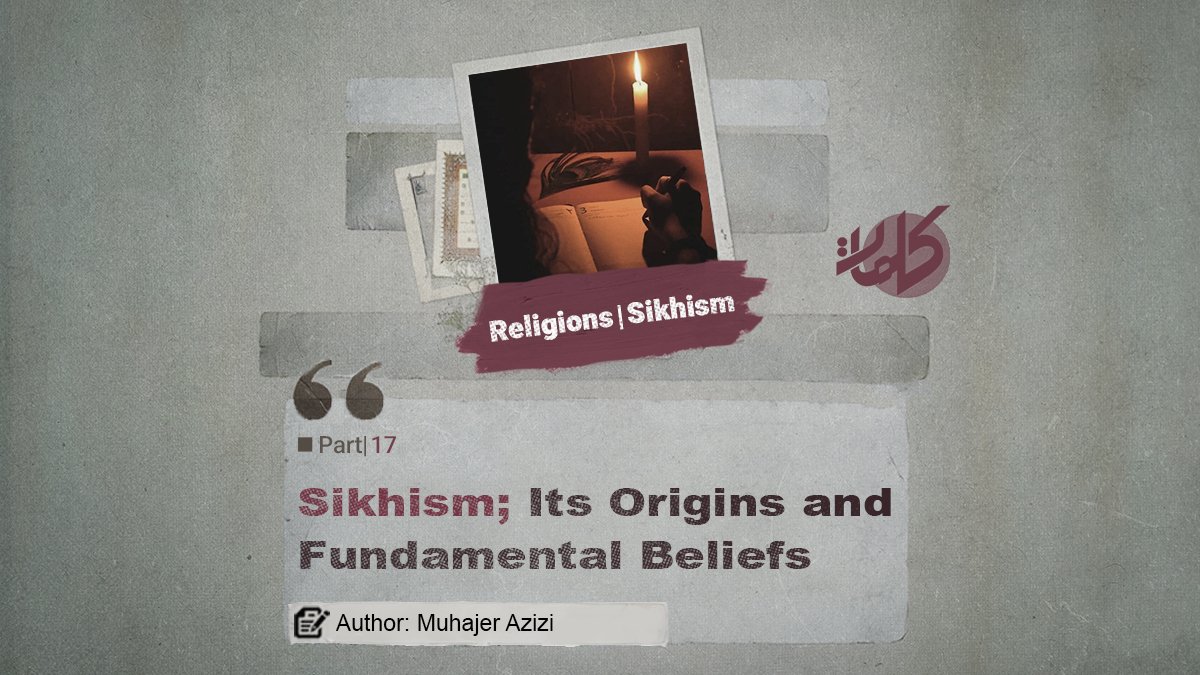Author: Muhajer Azizi
Sikhism; Its Origins and Fundamental Beliefs (Part 17)
3. Is Prophet hood acquired?
Another belief of Sikh about Prophet hood is that they consider prophet hood acquired and say: A wise man can achieve it through inner inspiration (INTUITION) and inner spiritual experience. An experience that enables man to find answers to questions that animals cannot, such as the question: “What is the purpose of my life?” In other words, man is trying to find the meaning of life and a purpose beyond survival. This purpose is what distinguishes man from other earthly beings. The purpose of human life is the greatest and noblest purpose compared to any other creature on earth. This purpose is the question of man’s destiny and his place after death. Man must answer this question wisely. Sikhs believe that the answer to this question is possible only through inner intuition and spiritual experience. Those who have such an experience and have attained this awareness are called “holy people” and their achievement of this knowledge is presented in the form of a belief called “Faith”. Sikhs consider prophets to be those who have reached this level of faith, but they do not consider them to be prophets in the sense of heavenly prophets.
Sikhs believe that man can attain this level through thought, study, asceticism, contemplation and spiritual growth. However, this access is not possible for everyone, but only those who have a pure and holy soul have the ability to break through the veils and reach this awareness. [1]
4. Rejection and criticism of this claim from the perspective of Islam
Prophecy and prophet hood are not acquired positions but are simply a divine and chosen gift that is given by God (Allah) only to His chosen servants. Humans cannot achieve this status through effort, austerity, asceticism, or even piety, because prophet hood is conferred on specific individuals based on divine knowledge and wisdom.
Allah Almighty says in the Holy Quran: «اللَّهُ أَعْلَمُ حَيْثُ يَجْعَلُ رِسَالَتَهُ» Translation: “Allah knows best where He places His message.” [2]
This verse clearly states that prophet hood is a divine and non-acquired position, and only Allah knows who is worthy of receiving this heavy responsibility. Therefore, no one can achieve the position of prophet hood through individual effort and struggle.
Elsewhere, Allah Almighty says about some of His great prophets: «وَاذْكُرْ عِبَادَنَا إِبْرَاهِيمَ وَإِسْحَاقَ وَيَعْقُوبَ أُوْلِي الْأَيْدِي وَالْأَبْصَارِ • إِنَّا أَخْلَصْنَاهُم بِخَالِصَةٍ ذِكْرَى الدَّارِ» Translation: “Remember Our servants Abraham, Isaac, and Jacob, men of strength and insight. We purified them with a pure attribute, the remembrance of the Hereafter.” [3]
This verse also clearly explains that the choice of prophets is not due to personal asceticism and effort, but rather the result of a special purity and selection that is in the hands of Allah alone.
Most importantly, the door of prophet hood was closed forever after the Prophet Muhammad (peace be upon him) was sent, and no new prophet would emerge after him. The Holy Quran states in this regard: «مَا كَانَ مُحَمَّدٌ أَبَا أَحَدٍ مِن رِّجَالِكُمْ وَلَـٰكِن رَّسُولَ اللَّهِ وَخَاتَمَ النَّبِيِّينَ» Translation: “Muhammad is not the father of any of your men, but he is the Messenger of Allah and the last of the Prophets.” [4]
The term “خاتمالنبیین” definitely indicates the end of the prophetic chain with the sending of Prophet Muhammad (peace be upon him). Therefore, any claim to prophet hood, as well as any belief that prophet hood is acquired, after him is not only false, but also a denial of one of the definitive principles of faith and leads a person into disbelief.
Continues…
Previous Part/ Next Part
References:
1. Nader Al-Suhail, The Sikh Sect, Presentation and Criticism, p. 220.
2. Surah Al-An’am, verse 124.
3. Surah Sa’ad, verses 45-46.
4. Surah Ahzab, verse 40.



